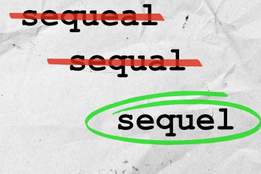Word of the Day
: November 8, 2017mandarin
playWhat It Means
1 : of, relating to, or typical of a public official in the Chinese Empire of any of nine superior grades
2 : marked by polished ornate complexity of language
mandarin in Context
"I don't think there's anything about the novel that doesn't impress me: its stream of satirical invention…; its mandarin prose that perfectly conjures the trancelike drift of a modern consciousness overwhelmed by detail; and its breathtaking risks with structure…." — Alan Moore, quoted in The International New York Times, 10 Sept. 2016
"The good doctor's prose is measured and self-assured, replete with allusions to classical texts. Here is a wonderfully lively, promiscuous mind, unashamed of its erudition. The voice attains a richly spun, mandarin quality; the text comes to have the feeling of so much silk." — Rafael Campo, The Washington Post, 22 Nov. 1998
Did You Know?
The Portuguese were the first to refer to a Chinese official as a "mandarin." The word hails from the Portuguese word mandarim, which developed, by way of Malay měntěri, from Sanskrit mantrin, meaning "counselor." Mandarins were promoted by successfully completing the imperial Chinese examination system, which was primarily based on the teachings of Confucian texts. In time, mandarin became a word for a pedantic official, a bureaucrat, or a person of position and influence. The noun passed into the English language in the late 16th century, and the adjective appeared in the early 17th. You may also know Mandarin as a word for the chief dialect of China or be familiar with the mandarin orange (the fruit's name comes from the orange color of a mandarin official's robe).
Test Your Vocabulary
Fill in the blanks to complete a word for a government official: _ _ nc _ i _ n _ r _.
VIEW THE ANSWER










